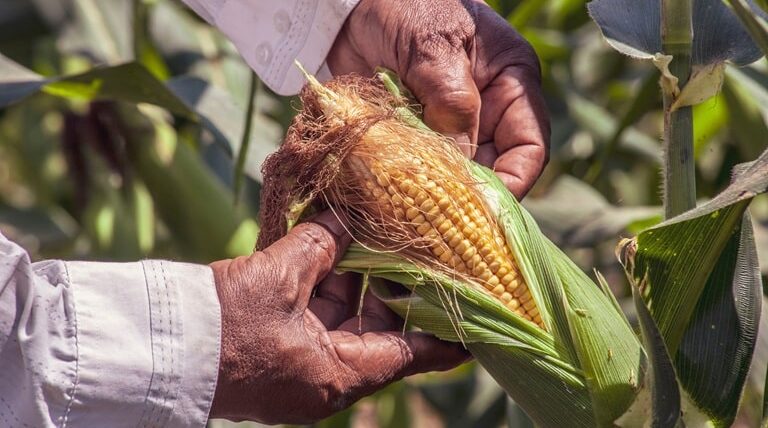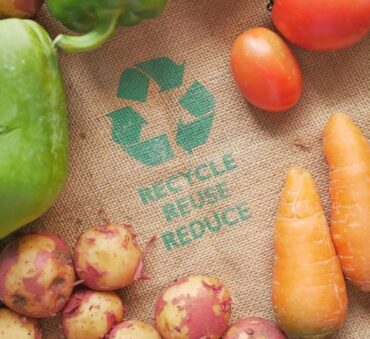Food waste is a global issue that affects us all yet often goes unnoticed. In the U.S. alone, 30–40 percent of the food supply is wasted. In fact, food is the single largest component taking up space inside U.S. landfills; when we consider that this is equivalent to 130 billion meals gone to waste, then it’s clear that it’s become a huge issue.
And of course, these numbers don’t come without repercussions. Food waste’s effect on the environment is a huge concern, contributing to greenhouse gas emissions, pollution, and a negative effect on biodiversity.
With such shocking statistics, many people want to do their part but aren’t sure how to contribute. So, how do we fight food waste?
Fighting the food waste crisis starts by implementing national and state-level laws in the food industry and within our own homes. Let’s look at food waste laws in America and what each state is doing to help.
Key Takeaways
- 30-40% of the food supply in the United States is wasted, contributing to greenhouse gas emissions, pollution, and a negative effect on biodiversity.
- In 2015, the EPA and USDA announced a national goal to reduce food loss and waste in the U.S. by 50% by 2030.
- Various initiatives and food waste laws in America have been implemented to encourage and obligate businesses to participate, such as local laws, tax breaks, and the ability to donate food without liability.
- State and city-wide laws have been passed to help reduce food waste, with 12 states standing out for their innovative strategies: California, Vermont, Massachusetts, New York, Texas, Oregon, Connecticut, Hawaii, Rhode Island, Washington, and Minnesota.
- Technology is now being utilized to help businesses comply with laws and manage their food waste more efficiently.
Federal Initiatives and Regulations
The United States has implemented various initiatives and laws about food waste to contribute to this movement. Keep reading to learn more about the U.S.’s current food reduction goal and their efforts to achieve it.
National Food Waste Reduction Goals
In 2015, the EPA and USDA announced a national goal to reduce food loss and waste in the U.S. by 50% by 2030. To carry this out, the EPA, USDA, and FDA came together to form a Federal Interagency Collaboration, where they work with communities, organizations, and businesses to take necessary actions.
Some of the activities that they perform include community investments, education and outreach, voluntary programs, public-private partnerships, event participation, and more. Reaching these goals will have a direct impact on food insecurity and have a lasting impact on the environment.
Key Federal Laws and Acts
So, what has the U.S. done to make a difference?
There’s no immediate solution to reducing food waste, but multiple laws and acts have been passed to get the ball rolling.
One of the important landmarks is the Bill Emerson Good Samaritan Food Donation Act, an act that addresses food waste in relation to expiration dates and the variation of labels among states and products. This act encourages businesses, restaurants, grocery stores, and individuals to donate surplus food to food banks, shelters, and other charitable organizations without being held liable if the food causes harm to the recipients. This has been a huge success in the fight against food waste, as it helps prevent healthy food from ending up in landfills.
In another effort to promote food donations, the government has implemented tax incentives to motivate businesses. When businesses donate food that meets certain criteria, they are eligible for enhanced tax deductions. This incentive provides benefits for both businesses and their communities.

State-Level Food Waste Legislation
While there are some national laws on food waste in place, many states and cities have created their own anti-food waste laws to contribute to the national goal. There are 12 states that stand out for their strategies:
California’s Progressive Food Waste Laws
California food waste laws make it one of the most progressive states in addressing organic waste recycling. But what has California done to make it stand out for its recycling efforts?
To start with, California requires all of its inhabitants to separate their organic waste while also making it mandatory for certain businesses to donate edible food to food recovery organizations.
To encourage people and businesses to participate in these programs, California also approved its own version of the Bill Emerson act called the California Good Samaritan Food Donation Act. This act protects food donors and organizations that donate food in good faith to nonprofit organizations.
California also uses anaerobic digestion for processing food waste to break down organic materials. This helps generate renewable energy, reduce greenhouse gas emissions, and manage food waste sustainably.
Food waste in Los Angeles is tackled through comprehensive waste management programs that focus on reducing landfill waste and increasing organic recycling. These initiatives include extensive curbside composting services and community education efforts to promote sustainable waste practices.
Vermont’s Organic Waste Ban
In 2020, the Vermont Universal Recycling Law was passed, banning the disposal of food scraps in trash or landfills. Thanks to this law, food scraps must now be donated to people in need, used for animal feed, or used for composting or anaerobic digestion. Since this Vermont food waste law was passed, food donations have nearly tripled.
Massachusetts’ Food Waste Ban
Massachusetts implemented a Commercial Food Material Disposal Ban to restrict certain businesses and institutions from disposing of commercial organic waste. This applies to any business that generates more than one-half tons of these materials per week. The goal of this ban is to divert at least 35% of all food waste from disposal statewide, therefore promoting environmental sustainability.
New York’s Food Waste Regulation Approach
New York food waste laws have a particular focus on commercial organic waste recycling and donation requirements. Passed in January 2022, the NYS Food Donation and Food Scraps Recycling Law requires businesses and institutions that generate a minimum annual average of 2 tons of wasted food per week to donate excess edible food and recycle remaining food scraps.
Texas Food Waste Regulation
Texas does not have a state-wide food waste ban, but Austin is making the effort to implement its own laws. The Universal Recycling Ordinance (URO) supports Austin’s zero-waste goal by requiring commercial business owners and multifamily properties to ensure that all residents and employees have access to recycling. This effort has helped keep organic waste out of landfills.
Oregon’s Food Waste Policies
In Oregon, farmers and farm businesses are eligible for a tax credit valued at 15% of the wholesale market price for the donation of crops and livestock to a food bank or other charitable organization for free. There is also a region-wide policy that requires food businesses to compost food scraps. As an effort to keep food waste out of landfills, eligible businesses must set up a compost service, arrange internal containers with labels showing what food goes in compost, and put all food scraps in compost.
Connecticut’s Organic Waste Legislation
Under Connecticut’s Commercial Organics Recycling Law, any commercial food wholesaler or distributor, industrial food manufacturer or processor, supermarket, resort, or conference center that produces at least 26 tons a year of food waste must separate its organic waste. This ensures proper recycling at an authorized composting facility. This law has led to an overall increase in interest in food scrap recycling.
Hawaii’s Food Waste Management Legislation
Hawaii is another state that doesn’t have a state-wide organic waste ban or waste recycling laws. Honolulu is the only city that has implemented a Municipal Waste Ban, requiring owners of food establishments that fall under certain categories to separate food waste to be recycled at an organic recycling facility.
Rhode Island’s Food Waste Legislation
Rhode Island has a state-wide Food Waste Ban that applies to businesses and institutions that generate more than 104 tons of organic waste a year. With the goal of fostering a greener local economy, eligible institutions are required to separate their organics and arrange for the waste to be composted, anaerobically digested, or utilized in another approved recycling method, such as for agricultural purposes.
New Jersey’s Food Waste Policy
New Jersey’s Food Waste Recycling and Food Waste-to-Energy Production Law requires large food generators that generate an average of 52 tons of food waste or more a year to start recycling their food waste. This includes commercial food wholesalers, distributors, industrial food processors, supermarkets, resorts, conference centers, banquet halls, restaurants, educational or religious institutions, military installations, prisons, hospitals, medical facilities, and casinos.
Washington Food Waste Legislation
Washington has a Food Waste Reduction Act that aims to reduce food waste by 50% by 2030. This law established statewide food reduction goals with yearly milestones to help reach its objectives. Seattle requires residents and businesses to not put food scraps, compostable paper, yard waste, and recyclables in their garbage.
As a way of promoting sustainable waste management, the Washington State Department of Ecology provides guidance and resources to promote composting. The tactic of converting food waste into animal feed has also reduced the amount of food waste that goes to landfills and has provided many environmental and social benefits.
Minnesota’s Food Waste Management Legislation
Minnesota doesn’t have state-wide food disposal laws, but Hennepin County and the Western Lake Superior Sanitary District have their own laws that residents must abide by. Hennepin County requires certain businesses and residents to participate in recycling programs, such as the separation of food waste. They also have an organic recycling program and food donation programs to encourage others to participate. The Western Lake Superior Sanitary District has its own laws, requiring certain establishments to separate their organic waste for pick-up by a recovery service.

Challenges for Businesses in Compliance with the Food Waste Legislation
Implementing food waste laws in the U.S. is filled with challenges. While many businesses want to contribute to this movement and follow the legal requirements of their state, they often must overcome their own obstacles along the way.
One of the challenges in reducing food waste is the need for consistent regulations at various levels of government. Since some laws vary depending on the state, city, and type of business, there is often confusion in regard to the expected responsibilities. A more hands-on collaboration among businesses, residents, and local governments could result in a better understanding of the situation at hand.
And of course, many unique challenges come with restaurant waste management, grocery store waste management, and bakery waste management. Some of the common issues include storage, expiration dates, inefficient stock management, over-preparation of food, and difficulty forecasting customer demand.
So, how do businesses overcome these challenges?
Technology has proven to be a great tool for complying with anti-food waste laws and managing food waste. There are systems available that help businesses track their food inventory, waste management, compliance, and even food donation platforms that connect businesses with food banks.
And depending on the industry, there are certain things that businesses can do to stay consistent. They can train their employees in waste management, establish partnerships with local organizations, or use their waste for fermentation, compost, or other healthy recycling solutions.
Ongoing Legislative Efforts
There are many new food waste laws that are working to shape the future of food waste strategies. The Zero Food Waste Act and COMPOST Act encourage farmers to implement sustainable farming practices. They also provide local governments with the resources required to develop strategies that reduce food waste in the United States.
The increase in food waste technology solutions is also a great strategy for quality control, food manufacturing, and processing. This innovative solution, as discussed above, helps businesses comply with laws and create sustainable recycling efforts, such as composting and anaerobic digestion.
We’ve also seen an increase in food waste upcycling, the act of transforming food into valuable resources. This includes turning waste into animal feed, using household waste to make new dishes, and the production of biochar.
All these efforts work towards meeting the United States’ goal of reducing waste by 50% by 2030. We expect that with time, we’ll continue to see more awareness and innovative strategies to reduce the global food waste crisis.
Conclusion
At Shapiro, we’re thrilled to see that there’s an increase in food waste laws in America, and we’re doing our part to make recycling more attainable. Our food waste recycling management solutions make it easy to protect the environment and comply with national and local laws. By having an external partner in waste management, businesses can feel confident they’re staying on the right track and contributing to a goal that benefits both the environment and our community.
Contact us today to learn more about our waste management solutions.
Baily Ramsey, an accomplished marketing specialist, brings a unique blend of anthropological insight and marketing finesse to the digital landscape. Specializing in educational content creation, she creates content for various industries, with a particular interest in environmental initiatives.



